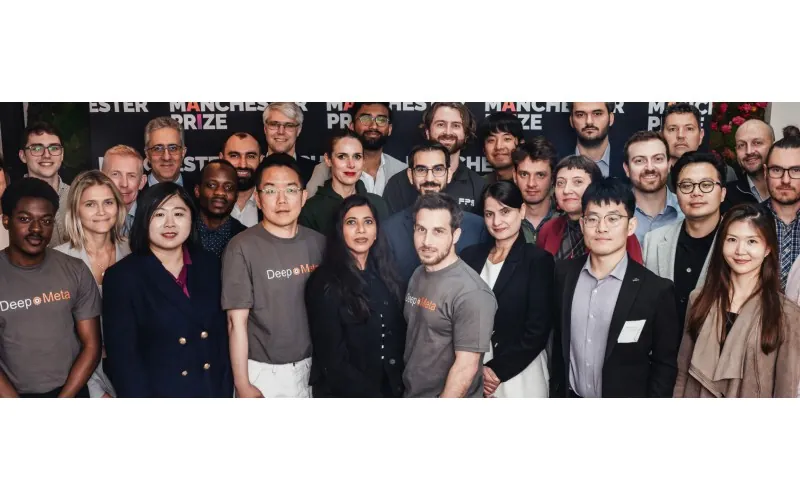The ten finalists for the second round of the Manchester Prize have been announced, with firms on the list developing technologies that could transform how Britain tackles climate change.
The businesses could help achieve this whilst also cutting costs for working families, as government ministers back innovations which may help make the UK a clean energy superpower.
Among them is a system using AI to design bespoke panels, turning bricks into radiators to warm homes from the outside in, keeping a comfortable inside temperature all year round and simplifying the installation of heat pumps in older homes – all whilst reducing costs.
Another team uses AI-enabled drones to map heat loss across entire neighbourhoods, helping councils identify exactly which homes need urgent insulation upgrades.
The Manchester Prize, funded by the Department of Science, Innovation and Technology and delivered by Challenge Works, looks to reward UK-led AI breakthroughs that support the public good.
The ten teams behind the advanced AI solutions have each received £100,000 in seed funding, plus £60,000 worth of compute credits to help train and scale their models.
They will also benefit from non-financial support including investor readiness guidance and access to a network of experts, positioning them for success in the pursuit of the £1m grand prize in spring 2026.
EDF swoop values Pod Point, once priced at £350m, at just £10m
“AI is opening up transformative new ways to tackle climate change and support the UK’s ambition to become a clean energy superpower,” said Secretary of State for Science, Innovation and Technology, Peter Kyle.
“That includes using the technology to keep our homes warm, while also supporting projects which will use AI to slash carbon emissions in our cement and steel industries – sectors which account for 16% of global emissions.
“This is how we deliver our Plan for Change – harnessing innovation to solve major challenges, cut energy bills, and improve lives across Britain.”
Energy Secretary Ed Miliband added: “Clean power is the economic opportunity of the 21st century and these projects will help households and businesses take advantage of lower bills, in a smarter and faster way than ever before.
“From specially designed radiator walls to a smart power grid that flicks on and off as we need, AI has the potential to help every home in Britain to feel the benefits of warmer homes and homegrown clean energy.”
Julia King, Baroness Brown of Cambridge, chair of the Manchester Prize judging panel, continued:
“We are at a critical juncture in the journey to net zero, the next decade is make or break if the world is to keep global temperatures from exceeding 1.5C by 2050.
“Global emissions need to halve by 2030 compared to 1990 levels if we are to stay on track, while electricity production will need to double by 2050 to meet the demands of an electrified economy – clean energy innovation is essential.
“The rapid advancement of AI means we have tools like never before to achieve the goal of decarbonising the economy while supporting individuals, communities and businesses to thrive.”
The shortlisted finalists, listed below, will now follow in the footsteps of Polaron – the inaugural winners of the Manchester Prize.
The Imperial College London spinout speeds up the development of advanced materials used in all walks of life.
The ten finalists for the second round of the Manchester Prize are:
Agent Net Zero
BiofuelAI
Carbon Re
Cavolo
Deep.Optimiser-PhyX
DRIVE
EnergyWall
Green Loops
Grid Stability
RaThPAs


